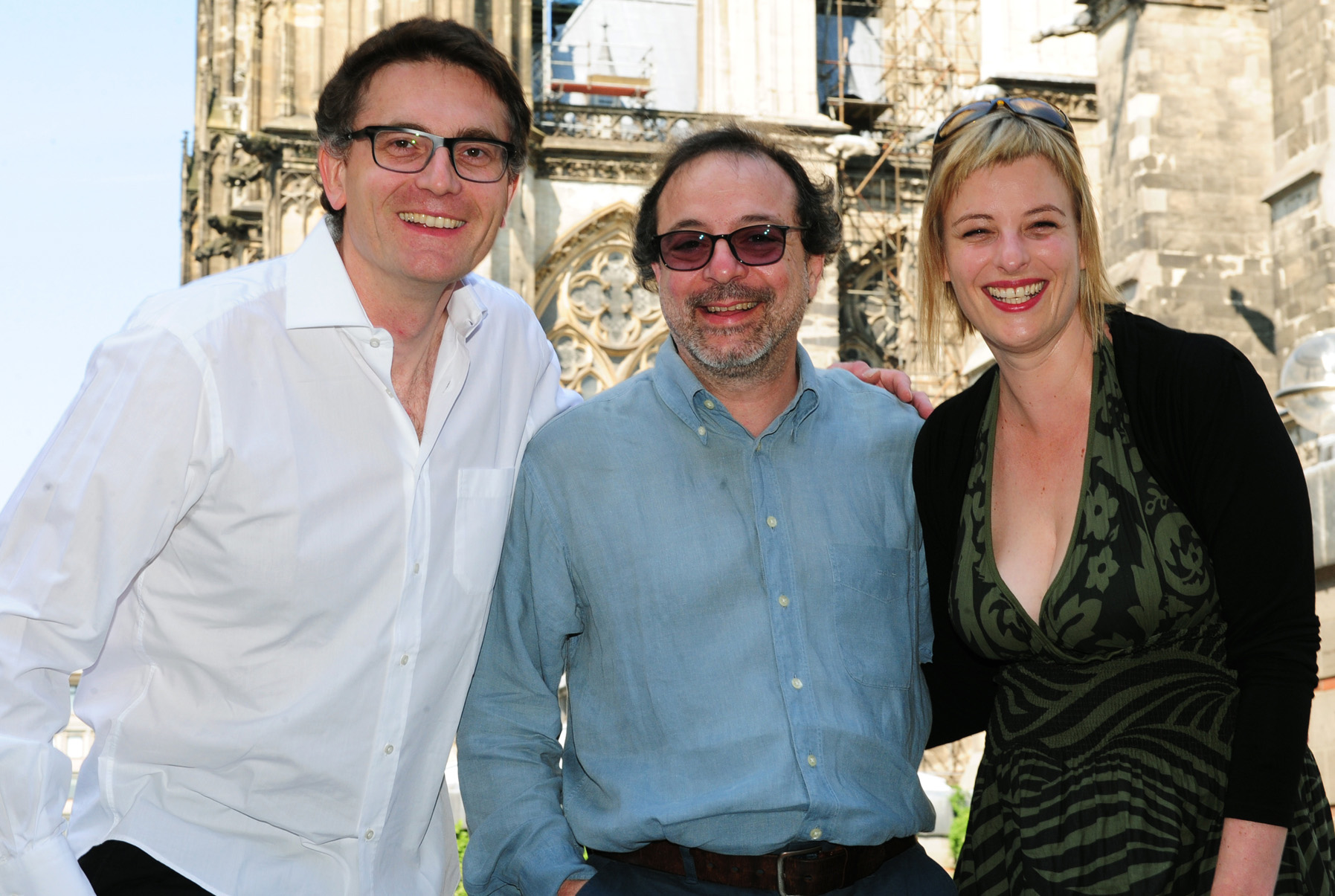« German Double Triumph in Moscow | Home | German Films Previews Turn 10 »
Turkish Delight and 3D: Filmstiftung NRW’s International Film Conference at Medienforum NRW
By Martin Blaney | July 12, 2010
The regional elections in North Rhine-Westphalia in May meant that the Medienforum NRW saw its dates this year at the end of June head-to-head with Filmfest München and the FIFA World Cup in South Africa. Despite having to cope with this competition as well as sweltering temperatures, the Filmstiftung NRW brought to a compact and varied programme of film screenings and discussion events over four days from 26-29 June.
The KinoSpecials kicked off with a special closed presentation of Anita and Fred (Satte Farben vor Schwarz), the debut feature film by Swiss-German filmmaker Sophie Heldman, who graduated from the German Film & Television Academy (dffb) in 2004.
Inspired by actual events, the film centres on the couple Anita and Fred who have been happily married for 50 years and are still very much in love. Fred’s terminal illness – whose existence is only known to his wife – brings some surprising changes in their lives and those of their family.
The casting of Satte Farben vor Schwarz sees veteran actors Senta Berger and Bruno Ganz appearing for the first time together before the camera. Producer Titus Kreyenberg revealed after the screening that the film has been invited to compete in San Sebastian in September and have its premiere at the Hof Film Days at the end of October.
Sunday evening then saw the premiere at the Filmforum NRW cinema of Shirin Neshat’s Women Without Men, the winner of the Silver Lion for Best Direction in Venice last year, with lead actress Pegah Freydoni and director Neshat in attendance to lead a spirited discussion with the audience.
The Film Conference also scored a first in this year’s film programme by showing the complete Yusuf trilogy by Turkish director Semih Kaplanoglu, beginning with Yumurta (Egg) and followed by Süt (Milk) and Bal (Honey), the winner of this year’s Golden Bear at the Berlinale (see report in KINO 97).
In a public interview with the journalist Frank Olbert of the Kölner Stadtanzeiger before the screening of Bal, Kaplanoglu said that he could not say „whether cinema is primarily a visual medium. For me, filmmaking is connected with poetry because I come from a culture where the people have expressed their feelings for centuries through poetry.“
After the screening, he was joined by producers Bettina Brokemper and Johannes Rexin on stage to talke about the film’s genesis and answer questions from a packed auditorium.
(Rexin also told KINO – German Film that his company Heimatfilm is now preparing its third film with Kaplanoglu after Milk and Honey)
The Film Conference’s organiser Katharina Blum should also be congratulated for organising a showcase presenting the „best of“ student work from the region’s film schools – ifs Internationale Filmschule Köln, the Academy of Media Arts (KHM) in Cologne and Kunsthochschule and the Dortmund University of Applied Sciences and Arts – which had all been supported by the Filmstiftung NRW.
The whole gamut of style and genres was offered by such films as Andrzej Król’s First Steps Award-nominee Birthday, Bogdana Vera Lorenz’s hard-hitting Home Game (Heimspiel) about a teacher of ethics leading a double life as a ruthless hooligan, Florian Riegel’s moving documentary Holding Still about a paraplegic, as well as Isabel Prahl’s one-minute social commercial Poverty Tells Many Stories (Armut kennt viele Geschichten) which won the prize for best direction at the Cannes Advertising Festival in June.
Many of these titles have already had success at international festivals, but are certainly worth catching if they haven’t yet been to your neck of the woods.
Meanwhile, the conference discussion programme was graced by the presence of legendary filmmaker Wim Wenders who took time out from shooting in Wuppertal for his latest film Pina (see report in KINO 97) to come over to Cologne to share his thoughts and experiences of working in stereoscopic 3D.
„There is nothing more fantastic for documentaries than to shoot them in 3D because this enables you to create a new approach to reality,“ he said.
Berlin-based producer Martin Hagemann of zero film is similarly enthusiastic of the opportunities opened up by 3D as he prepares the production of the science fiction thriller Creeping Zero with UK partners for shooting later this year. “The mis-en-scéne plays a much more important role,” he noted after having made a 10-minute teaser in 3D to attract financiers to the project.
More information on the International Film Conference and the Medienforum NRW can be found at: www.medienforum.nrw.de
Topics: German Film, International Reports | Comments Off on Turkish Delight and 3D: Filmstiftung NRW’s International Film Conference at Medienforum NRW
Comments are closed.


